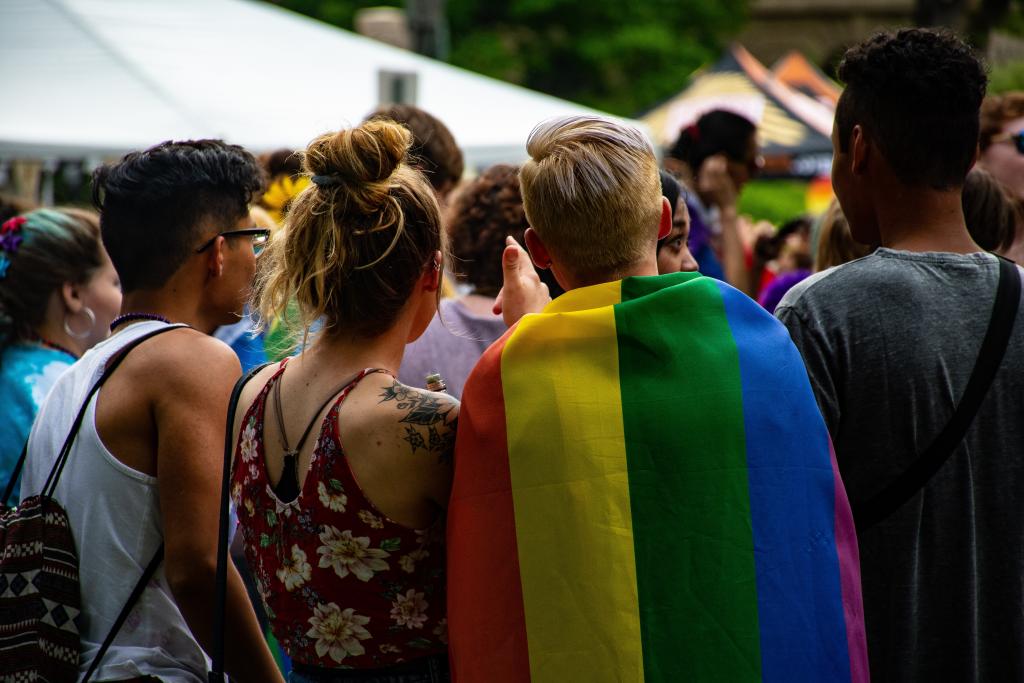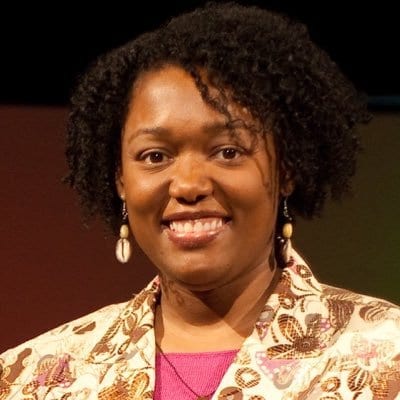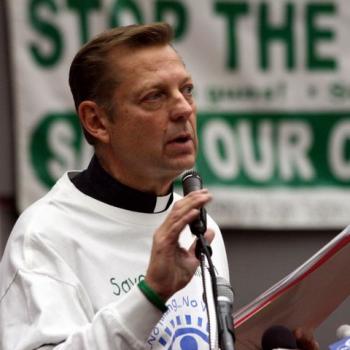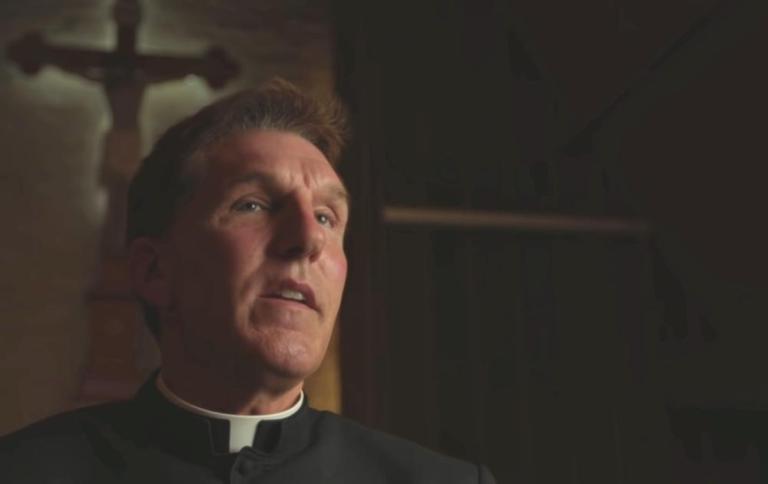
Father Brian Massingale was in a Zoom meeting last Wednesday morning when his phone began to “blow up” with elated text messages from his friends, many of them Catholics who identify as gay.
“They were universally jubilant,” Father Massingale said in describing his friends’ reactions to reports that Pope Francis, in a new documentary, had expressed his personal support for civil unions for same-sex couples.
Father Massingale, a theologian and ethicist at Fordham University who himself is gay, told me in an interview last Wednesday that he had the same reaction, especially as he read more about the content of the Holy Father’s comments in the film “Francesco.”
“He doesn’t call for a change in the Church’s teaching on the morality of sexual acts,” Father Massingale said. “However, he says we have to remember (homosexuals) are still human beings. They have fundamental human rights, and their rights have to be recognized and protected.”
The Controversy
Pope Francis’ reported remarks in “Francesco” – that LGBTQ persons are “children of God and have a right to be part of a family,” and that a civil union law would be a good way to legally protect them – exploded last week in the Catholic and secular press. The aftershocks are still being felt this week with more editorials, essays, and podcasts.
There is still some uncertainty as to what exactly the pope meant. According to various reports in Catholic media outlets, the pope’s comments about gay people having a right to belong to a family and his thoughts on civil unions appear to have been spliced together from two separate answers he gave in a 2019 interview to a Mexican journalist. The documentarian, who did not get to directly interview Pope Francis, reportedly obtained the footage from a longer unedited video in the Vatican archives.
To date, the Vatican Press Office has not responded to the media’s questions seeking to clarify Pope Francis’ comments, which seem to contradict a 2003 document from the Vatican’s Congregation for the Doctrine of the Faith. In that earlier guidance, the CDF said that all Catholics, especially politicians, were “obliged to oppose the legal recognition of homosexual unions.”
With no clarification from the Vatican, some analysts have been trying to read tea leaves, with some noting that the pope’s comments in the documentary are consistent with previous statements he’s made as pope, and as archbishop of Buenos Aires, about civil unions being a possible solution to protecting LGBTQ people’s legal rights. When raising that possibility, he’s also made the point to emphasize the Church’s teaching that marriage can only be between a man and a woman.
“Conservatives claim that Francis has in some way undermined or gone against Church teaching, which is clearly false: he has firmly defended Church doctrine on sexuality and marriage, while the question of how civil law should handle non-marital relationships is not a matter of doctrine but of prudential judgment and discernment,” the Catholic journalist and papal biographer Austen Ivereigh writes this week in Commonweal.
The Confusion
There are legitimate points to be made that Pope Francis may want to consider being more guarded and careful in his interviews and off-the-cuff remarks with journalists because his intended message can get warped and lost in the resulting media firestorms and misleading headlines.
Scott P. Richert, the publisher of Our Sunday Visitor, where I write as a contributing editor, penned a recent analysis where he suggests that Pope Francis’ interviews with journalists documentarian “have often done less to advance the truths that the Catholic Church teaches than to provide bombshell headlines based on an ill-thought-out remark from the Holy Father.”
Richert writes:
In the recent case of his remarks on the “need” for legislation guaranteeing “civil unions,” an additional character trait may be at work: Pope Francis’ oft-stated unwillingness to follow politics or even watch the news. Were he more politically aware, he might realize that, in every country where the definition of marriage has been legally extended to same-sex couples, civil unions have never proved an alternative to such legal redefinition but a prelude to it.
John S. Grabowski, an associate professor of moral theology ethics at The Catholic University of America, also wrote an analysis for Our Sunday Visitor, where he noted that the CDF’s 2003 statement was itself a prudential judgment that did not have doctrinal weight.
Grabowski writes:
Second, that document itself envisaged a scenario in which, while not supporting the passage of such legislation, a Catholic politician might work with such a measure once passed as a way to secure legal protections for the basic human rights of people with same-sex attraction as long it did not “confer equivalent family status” on such unions. Pope Francis, it seems, may have a different prudential judgment on the matter as a way to offer legal protection for the rights of people with same-sex attraction, but he has not publicly taught as much.
To assume that there is a doctrinal conflict of some kind here is fundamentally mistaken. There is no doctrinal conflict because there is no doctrine proposed by Pope Francis in the documentary or by the CDF in the 2003 document. Doctrine, by definition, is at a level deeper than prudential judgment. Catholic teaching on marriage, sexuality and the call to live chastity in continence for unmarried people is unchanged and has been consistently reaffirmed by Pope Francis.
Joe Heschmeyer, a lay evangelist and instructor with Holy Family School of Faith, told me in an email that Pope Francis’ words are problematic because, taken at face value, they seem to contradict what the Catholic Church “has boldly and counter-culturally taught” on marriage and family.
“In the face of gay marriage and civil unions, Pope John Paul II spoke of an urgent need to ‘proclaim the truth about marriage and the family,’ and warned that ‘not to do so would be a serious pastoral omission that would lead people into error,'” wrote Heschmeyer, who also blogs at shamelesspopery.
Heschmeyer also emailed me:
“The CDF under then-Cardinal Joseph Ratzinger said that to support civil unions “is gravely immoral,” since “the State could not grant legal standing to such unions without failing in its duty to promote and defend marriage as an institution essential to the common good.” After all, in a civil union, the state is actively encouraging (through tax benefits and other incentives) relationships which are destructive to the individuals involved, to families, and ultimately to society. These aren’t just the private musing of Karol Wojtyla or Joseph Ratzinger, but the Magisterial teaching of the Catholic Church in light of what Jesus Christ teaches about marriage and sexuality.
The impression that Pope Francis might be reversing course on all of this feels like both a theological and a pastoral betrayal, leaving the laity in a state of confusion. I think that this sense of betrayal is felt most keenly by those trying to live out the Gospel’s high call to celibacy from same-sex relationships, or trying to figure out how seriously to take the Church’s sexual ethic.
Many people who have defended Pope Francis’ comments argue that he is simply affirming the dignity of gay people, or the need for legal protection, to which Heschmeyer says:
“Those are both laudable goals, but as Cardinal Ratzinger warned in 2003, ‘the Church teaches that respect for homosexual persons cannot lead in any way to approval of homosexual behaviour or to legal recognition of homosexual unions,’ and that to do so would distort our understanding of marriage. It’s imperative on us as Catholics to live out both halves of what the Church calls us to – both to be clear in our opposition to any kind of legal recognition for homosexual unions or behavior, and to be equally clear in our respect for the homosexual persons, as these are people for whom Jesus Christ died on the Cross.
The plain language of what Pope Francis said is shocking, and seems difficult (or even impossible) to harmonize with what the Magisterium of the Church has taught about civil unions. This difficulty is compounded by the Vatican’s refusal to give needed clarifications. In the First Reading for Tuesday of the Thirtieth Week in Ordinary Time, St. Paul compares life in the Church to a marriage (cf. Eph. 5:21-33). And as with a marriage, there are three extremes you want to avoid: you don’t want to pretend that problems don’t exist, you don’t want to focus exclusively on the problems, and you don’t want to divorce. Instead, you call out problems when need be, deal with them if you can, and move forward, focusing on the positives. The same is true here: don’t whitewash the problems with what Pope Francis said, but also don’t freak out too much, and certainly don’t give up and go into schism. Acknowledge that if what is reported is accurate, the pope’s statements are wrong, pray for him, and move forward, “work[ing] out your own salvation with fear and trembling” (Phil. 2:12).
The Focus on Human Dignity
The few observers I interviewed last week who were favorable to the Holy Father’s remarks said they were compatible with a pastoral priority that affirms the human dignity of everyone, regardless of sexual orientation.
“It’s consistent with Pope Francis’ approach in a number of pastoral teachings that we have to meet people where they are, and invite them to a deeper relationship with Christ. That doesn’t start with condemnation,” said Bishop John Stowe of Lexington, Kentucky.
Bishop Stowe said he saw Pope Francis’ remarks about homosexuals deserving legal protections and having the right to be part of a family in connection with Fratelli Tutti, the pope’s recent social encyclical on human fraternity.
“The fact is in many of our parishes, we have same-sex couples, and they understand themselves as Catholics,” Bishop Stowe said. “They’re baptized members of the Church. They understand what the Church’s teaching is, but they still find themselves longing for the spiritual nourishment that comes from the Church.”
Chris Damian, 29, a Catholic speaker and author who identifies as gay and lives in St. Paul, Minnesota, emphasized that Pope Francis’ remarks are informal and featured in a film where the pope expresses his concerns over various threats to human dignity, including trafficking, economic exploitation, climate change and environmental degradation.
“To me, it’s not that he’s seeking to make a big public statement on these questions,” Damian said. “It’s just that he’s sharing his thoughts on some tough cultural-social issues, and he’s just giving his thought processes when it comes to these questions.
“I think some people try to look at these remarks as activist-type remarks. I don’t quite see them in that way, though I do think they are very significant statements to be making,” said Damian, who noted that Pope Francis has previously criticized gender ideology and opposed same-sex marriage when he was an archbishop in Argentina.
“But at the same time, he has, over the course of his papacy, asked how persons, who have considered themselves maybe not fully part of the Church, might find a more welcoming place within it,” Damian said.
As an archbishop in Argentina and as pontiff, Pope Francis has in several previous interviews defended the Church’s moral teaching that marriage is between a man and a woman, while suggesting civil union laws could provide legal protections for couples in longterm committed relationships.
“One of the things I think sometimes people don’t always appreciate is that you can defend a person’s rights without necessarily approving of their behavior,” Father Massingale of Fordham University said. “For example, you can believe that people who commit crimes are still human beings and are entitled to have their dignity protected and respected by society.”
That was the central message that Stan “JR” Zerkowski, the director of the Diocese of Lexington, Kentucky’s LGBT Ministry, took from Pope Francis’ reported remarks in “Francesco.”
“If we’re talking about the rights of the human person, I don’t know how anyone could seriously fault the Holy Father for that,” Zerkowski said. “The Catechism is clear; we need to show respect and sensitivy toward gay people. This is part and parcel to the Catechism. It’s part and parcel to the Gospel.”
A lack of respect and sensitivity toward LGBTQ people is not just a problem in the Church or Western society. Father Massingale noted that homosexuality is still criminalized in more than 70 countries.
“In five or six countries, people can be put to death, and are being put to death for this,” said Father Massingale, who emphasized that the Catholic Church is universal and has a global reach. The Holy Father is speaking to people in other countries outside the United States.
“So for the pope to emphasize the human dignity of gay people, this is going to save human lives,” Father Massingale said. “ We can never downplay that, or minimize that. This is indeed a very important thing for the Church to be squarely for the advocacy of human rights for all people, regardless of human characteristics such as race, class, gender or sexual orientation.”












